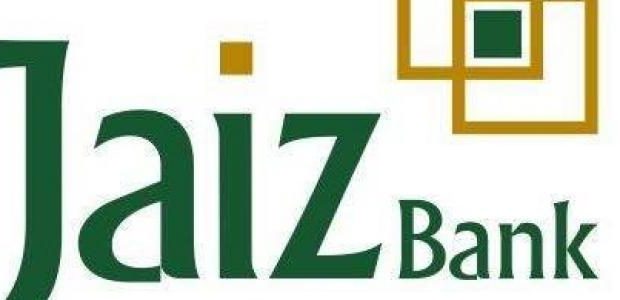E-Financial
Jaiz Bank Resumes Forex Sales to SMEs

Jaiz Bank Plc, Nigeria’s premier non-interest bank has resumed selling of foreign exchange to Small and Middle Enterprises (SMEs), in its efforts to cushion their challenges amplified by the rampaging COVID-19 pandemic and ultimately boost the economy.

The bank made the disclosure in a statement, adding that the foreign exchange was also available to parents to pay their children’s school fees and medical bills.
Other areas include Personal Travel Allowances (PTA) and Business Travel Allowances (BTA) amongst others.
According to the bank, SMEs importers can get up to $20,000 per quarter. It however noted that items of importation must not fall under those prohibited, as directed by the Central Bank of Nigeria (CBN).
The bank stated: “While the pandemic is being fought with lockdown and economies are opening up, we are committed to providing services that would encourage small and medium sized businesses because we strongly believe they are the fulcrum for economic growth and development.”
E-Financial
PalmPay Named Among CNBC and Statista’s World Top 300 Fintech Companies 2025

PalmPay, a leading neobank and fintech platform focused on emerging markets, has been recognised in CNBC and Statista’s 2025 Top 300 Fintech Companies in the World list. This marks the second year in a row that PalmPay has earned a place among the world’s most innovative and impactful financial technology firms.

The selection is based on a rigorous evaluation of thousands of companies globally, assessing growth, innovation, market penetration, and impact. This year’s list includes a mix of global leaders – including Revolut, Nubank and Ant Group – alongside rising stars from high-growth markets, underscoring the growing influence of emerging-market fintechs like PalmPay.
PalmPay’s inclusion reflects its continued momentum as one of Africa’s leading fintech platforms. With over 35 million registered users and up to 15 million transactions processed daily, the company offers a comprehensive suite of digital financial services tailored to the needs of underserved communities.
In its main market, Nigeria, PalmPay operates as a full-service neobank, offering consumer financial services such as transfers, bill payments, credit, savings, and insurance – all accessible through its user-friendly app and supported by a nationwide network of over 1 million agents and merchant partners. The company also provides POS and API-driven B2B solutions tailored to the needs of merchants and enterprise clients.
“To be recognised as one of the world’s top fintech companies by CNBC and Statista is a powerful affirmation of our mission to build a more inclusive financial system,” said Sofia Zab, Founding Chief Marketing Officer at PalmPay.
“Through cutting-edge technology, deep local distribution, and a customer-first mindset, we’ve built Nigeria’s leading neobank. As we scale PalmPay to more emerging markets, including Tanzania and Bangladesh, our focus remains on closing financial access gaps for everyday consumers and businesses, while expanding the partner ecosystem that fuels our reach and impact.”
As part of its broader expansion strategy, PalmPay recently launched in Tanzania and Bangladesh through a smartphone device financing model that serves as an entry point to digital financial services.
“PalmPay is building a neobanking platform tailored to the realities of emerging markets,” said Jiapei Yan, Group Chief Commercial Officer at PalmPay. “We are creating the infrastructure for a connected digital economy – where people and businesses can thrive through reliable, inclusive financial tools.
This recognition from CNBC and Statista affirms our progress and also the scale of the opportunity ahead. As we expand across more emerging markets, we are committed to creating lasting value for our users, partners, and the communities we serve.”
PalmPay’s inclusion follows another major recognition earlier this year: the company ranked #2 overall and #1 in the financial services sector on the Financial Times – Africa’s Fastest-Growing Companies 2025 list. The ranking, based on revenue growth between 2020 and 2023, highlighted PalmPay’s rapid scale and market traction across Africa.
PalmPay currently operates in Nigeria, Ghana, Tanzania, and Bangladesh, and is expanding its presence across Africa and Asia through device financing, digital banking, and B2B payment services. Backed by a robust neobanking platform and a partnership-led approach, the company is committed to shaping the next chapter of inclusive financial growth.
E-Financial
Fidelity Bank Champions Education in Nasarawa with CSR Project

Fidelity Bank Plc has reaffirmed its commitment to quality education and youth empowerment with the renovation of a classroom block and donation of textbooks to Aso Pada Government Secondary School in Karu LGA, Nasarawa State.

L-R: The Team Lead, CSR, Fidelity Bank Plc, Victoria Abuka; Vice Principal, Government Secondary School, Aso Pada, Maraba, Mr. Abdullahi Idris; Project Co-ordinator, Elite Bankers 2025 Inductee Class, Fidelity Bank Plc, Onyinyechi Ihesiaba; Vice Principal -Academics, Government Secondary School, Aso Pada, Maraba, Mr. Ela Isa; during the commissioning of a renovated block of classrooms and the distribution of Back-to-School Materials at Government Secondary School Aso Pada, Maraba, Nassarawa State recently.
The project was executed through the Fidelity Helping Hands Program (FHHP), a corporate social responsibility initiative that enables staff to identify community needs, raise funds, and receive matched support from the bank.
Speaking at the handover ceremony, Dr. Meksley Nwagboh, Divisional Head, Brand and Communications, said the school was chosen due to its impact on the local community and its lack of renovation in over 15 years.
Vice Principal Abdullahi Idris praised the bank’s gesture, calling it “an investment in the future of our nation,” and expressed hope for a lasting partnership.
The initiative follows Fidelity Bank’s recent donation of 1,000 solar-powered schoolbags to pupils across Ogun State, aimed at improving study conditions in areas with limited electricity.
Fidelity Bank serves over 9.1 million customers and has received multiple awards for innovation and SME support, including the 2024 Excellence in Digital Transformation Award and Best Bank for SMEs in Nigeria by Euromoney.
E-Financial
Zenith Banks Leads as 8 Banks Suffer N156Bn Impairment Charges

Eight leading Nigerian banks collectively set aside N156 billion as impairment charges on their credit and financial assets, marking a significant financial impact amidst a challenging economic environment, in the opening quarter of 2025.

Known commonly as loan losses or credit impairments, these charges highlight the banks’ defensive measures against risks arising from inflation, naira depreciation, and tightened liquidity affecting consumers and businesses alike.
The level of impairment varied considerably across institutions, reflecting divergent risk appetites and credit management practices.
Zenith Bank led with the highest provision of N49.38 billion, an 11.8 percent reduction from the previous year’s N55.97 billion.
This decline may suggest enhanced asset quality or more rigorous loan recovery tactics.
Broken down, loans and advances contributed N35.95 billion to impairments, while investment securities and treasury bills added N7.1 billion and N2.16 billion respectively.
Despite heavy provisioning, Zenith recorded a notable 20.7 percent increase in post-tax profit, soaring from N258.34 billion to N311.83 billion.
Similar trends emerged at First HoldCo, which posted N37.25 billion in impairment (down 11.2 percent), driven mainly by loans and advances provisions of N41.23 billion.
Offsetting this were write-offs and reversals that mitigated losses.
First HoldCo’s profit, however, fell to N171.10 billion from N208.11 billion.
Access Holdings and Guaranty Trust Holding Company also demonstrated reduced impairment charges, indicating stronger credit monitoring.
Access’s net provision dropped 4.5 percent to N21.77 billion, while Guaranty Trust’s impairment stabilized near last year’s N13.42 billion figure.
Yet, Guaranty Trust’s profit plunged 43.6 percent to N258.03 billion, a striking contrast to other banks’ profit growth.
On the other hand, United Bank for Africa (UBA) faced a staggering 332.2 percent surge in impairment, from N3.28 billion to N14.18 billion—pointing to amplified credit risks possibly driven by external economic pressures.
Nonetheless, UBA recorded a 33.1 percent profit uptick to N189.84 billion.
FCMB’s impairment charge fell notably by nearly 60 percent to N9.52 billion, aided by significant recoveries of previously written-off loans, boosting its profit to N32.23 billion.
Meanwhile, Fidelity Bank and Wema Bank posted sharp rises in impairment—285.8 percent and 64.7 percent increases respectively—reflecting heightened write-downs that underscore growing risk exposure amidst portfolio expansions.
Overall, while the cumulative impairment charge diminished by 5.2 percent compared to Q1 2024, individual bank results were mixed, embodying the varied strategies and external pressures in Nigeria’s banking sector.

 E-Financial2 days ago
E-Financial2 days agoZenith Banks Leads as 8 Banks Suffer N156Bn Impairment Charges

 Telecom2 days ago
Telecom2 days agoMTN @ Swish Fusion Summit, Showcases 5G Rollout Strategy

 E-Business2 days ago
E-Business2 days agoOlatunji, NDPC Boss Calls for Integrated Strategy on Data Privacy, Cyber-Security

 E-Business2 days ago
E-Business2 days agoKaspersky Experts Warn of the Risks Hidden Behind QR Codes

 E-Financial2 days ago
E-Financial2 days agoSEC Flags FF Tiffany as Ponzi Scheme

 News2 days ago
News2 days agoUS Launches ‘Window on America’ @ Ogun Tech Hub

 Telecom1 day ago
Telecom1 day agoMTN’s ₦31.75Bn Investment in Health Lauded at Arthur Mbanefo Lecture

 News2 days ago
News2 days agoSEC Probes Ponzi Scheme Linked to FF Tiffany



























